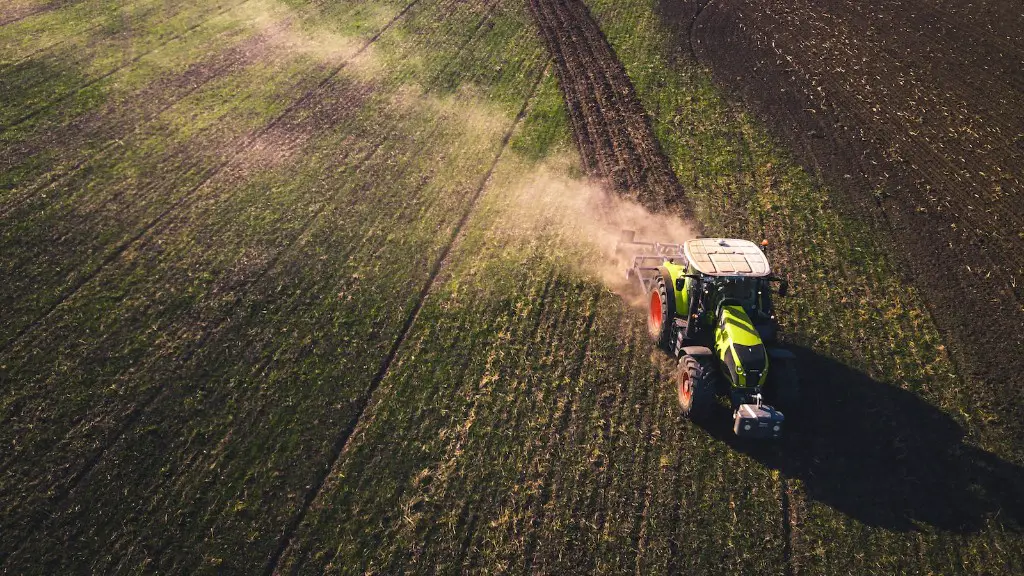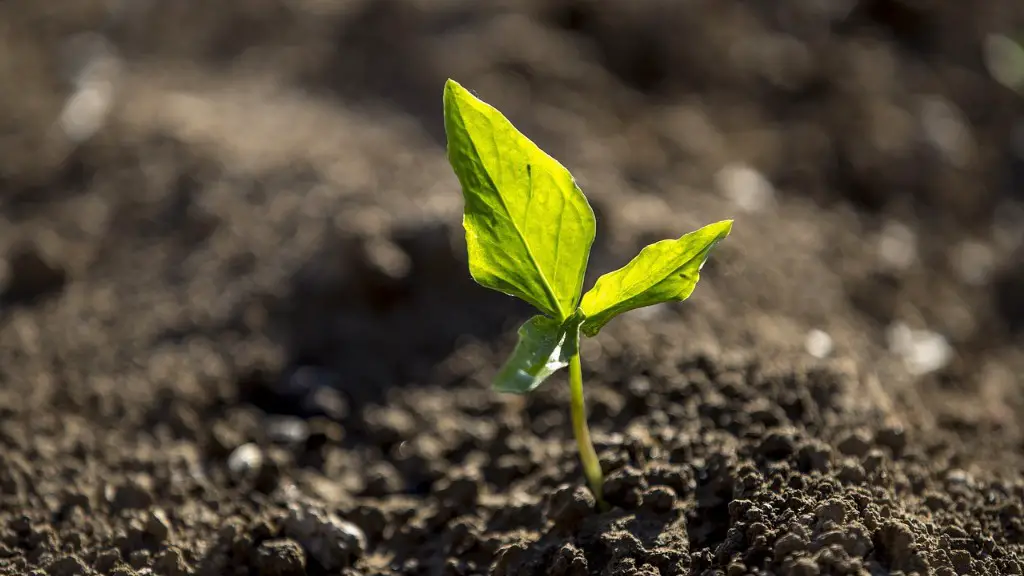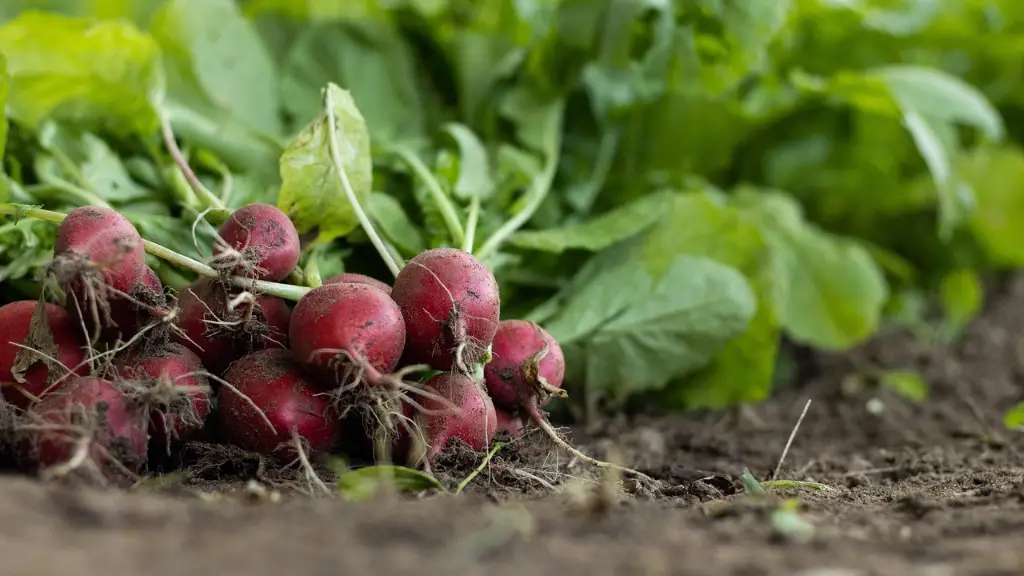Sustainable agriculture is a critical issue in the global fight against climate change and poverty. It involves managing the land and its resources in ways that ensure ongoing production, while at the same time preserving the environment and protecting the rights of communities involved in agriculture. Here are some key ways to improve sustainable agriculture.
The first step towards improving sustainable agriculture is to promote the use of modern technology to improve yields and improve the efficiency of production. This includes the use of improved variety of seed and better handling of pesticides and fertilizers. Additionally, there should be a focus on conservation agriculture and precision agriculture, which focus on improving soil health and fertilizer efficiency. Water management is also important in sustainable agriculture, so there should be measures taken to improve water conservation. This could include rainwater harvesting and the use of low-flush irrigation systems.
Another way to improve sustainable agriculture is through sustainable land management. This includes creatingbuffer zones between crop fields and other areas and planting trees and shrubs to reduce soil erosion and preserve habitats. Additionally, sustainable land management practices can help reduce chemical runoff into water sources. Existing agricultural lands should also be restored and revitalized to improve productivity and biodiversity.
It is also essential to consider the economic effects of sustainable agriculture. This means helping farmers and other stakeholders involved in agricultural production to find ways to improve their incomes and access to capital. Providing financial incentives to farmers and other stakeholders involved in agricultural production can be helpful. Additionally, there should be measures to increase the marketing and distribution of agricultural produce, as this is often a significant challenge for producers.
Finally, the social impacts of sustainable agriculture should also be considered. This includes supporting the rights of those disenfranchised by traditional agricultural systems and promoting land use policies that protect traditional agricultural knowledge and culture. Additionally, there should be greater access to education, so that people can become more informed about sustainable agriculture and their rights. Furthermore, developing an agricultural system that provides safe working conditions, access to decent wages, and job security is important for sustainable agriculture.
Modern Technology
Modern technology is one of the key ways to improve sustainable agriculture. With modern technology, increased yields can be achieved with better efficiency of production. For example, improved variety of seed, water conservation techniques, and handling of fertilizers and pesticides can all make crops more sustainable. To make this possible, investment in research and development is needed. Investment in new seed varieties and better irrigation techniques can yield in higher output and improved productivity. By understanding the dynamics of sustainable agriculture and its current standards, farmers can have access to modern technologies and approaches that enable them to be more efficient with water and pesticide usage.
Low-flush irrigation systems can reduce water consumption, allowing farmers to be more sustainable with the resources they have. Additionally, the use of precision agriculture technology can help increase the efficiency of crop production. Precision farming technologies help farmers predict the needs of their crops more accurately, ensuring that crops receive the proper amount of water, fertilizer, and other inputs. This helps ensure sustainable agriculture.
By investing in modern technology, farmers can make sure that their production processes are more efficient and sustainable. This helps ensure a steady supply of food and also helps to reduce environmental impacts. Furthermore, modern technology can reduce the cost of production, increasing profits for producers and making sustainable agriculture more financially viable.
Sustainable Land Management
Sustainable land management is another important part of sustainable agriculture. This involves the management of land and its resources in ways that ensure ongoing production, while also preserving the environment and protecting the rights of communities. This can include the use of buffer zones between crop fields and other areas, planting trees and shrubs, and restoring existing agricultural lands.
Creating buffer zones can provide a space between crop fields and other areas to protect biodiversity and reduce soil erosion. Planting trees and shrubs can also provide a barrier to erosion and also provide food or other resources to local communities. Restoring existing agricultural lands helps increase productivity, reduce soil erosion, and improve access to resources. This can help ensure that the land is managed sustainably and that resources are available for future generations.
Sustainable land management practices should be important considerations when developing agricultural policies. Farmers should be supported in their efforts to create more sustainable agricultural systems, including better access to resources and financial incentives. This helps to ensure that agricultural activity is managed in a way that preserves the environment and also benefits local communities.
Economic Effects
The economic aspects of sustainable agriculture are also important. This includes helping farmers and other stakeholders improve their incomes and access to capital. This could include providing financial incentives or other forms of support to farmers and other stakeholders. Additionally, measures should be taken to increase the marketing and distribution of agricultural produce to increase access to markets.
Improving access to financial resources can help farmers become more self-sufficient and open opportunities for more business activity. Stronger marketing and distribution networks can ensure that farmers have access to the markets they need. This helps to ensure that agricultural commodities can be traded more widely and that the rural communities that rely on it have access to the benefits.
In addition to financial support, there should also be measures taken to improve the capacity of farmers in sustainable production. This could involve training programs, projects to improve soil fertility, and access to modern technologies. Improving the capacity of farmers can help them understand the dynamics of sustainable agriculture and use new techniques to increase efficiency and productivity. This helps to ensure that agricultural production is sustainable and can provide economic benefits to rural communities.
Social Impacts
The social impacts of sustainable agriculture must also be considered. This includes supporting the rights of those disenfranchised by traditional agricultural systems and ensuring land use policies protect traditional agricultural knowledge and culture. Additionally, access to education should be improved so that people can become more informed about sustainable agriculture and their rights.
Supporting the rights of those disenfranchised by traditional agricultural systems means recognizing their traditional practices and giving them a stake in the management of land and resources. This includes the rights to access and control land, access to resources, and the right to a share of the benefits derived from it. This helps make sure that sustainable agriculture can provide not only economic, but also social benefits.
By ensuring access to education, people can become more informed about sustainable agriculture and their rights. Education also increases the capacity of rural communities to produce sustainably and access markets. Additionally, it can help to ensure that traditional knowledge is preserved and can help to reduce poverty by creating new economic opportunities.
Lastly, developing an agricultural system that provides safe working conditions, access to decent wages, and job security is essential for sustainable agriculture. This helps to ensure that rural communities have access to decent employment opportunities, allowing them to become more self-sufficient and have access to more resources. This helps to ensure that sustainable agriculture can provide social benefits to rural communities and generates economic activity.




